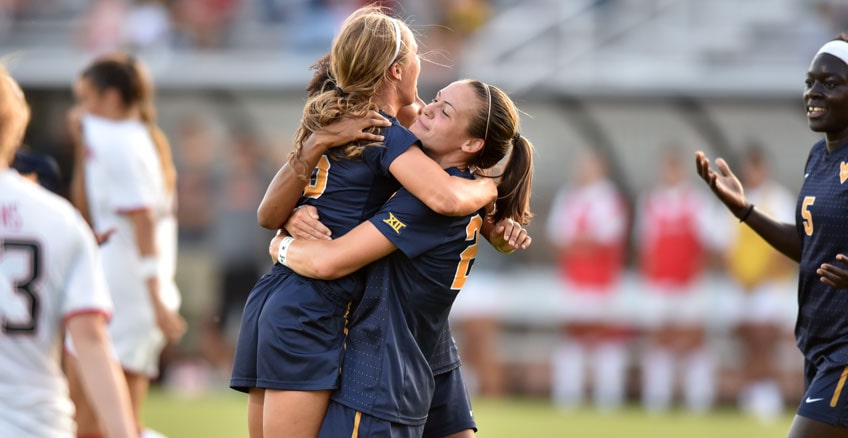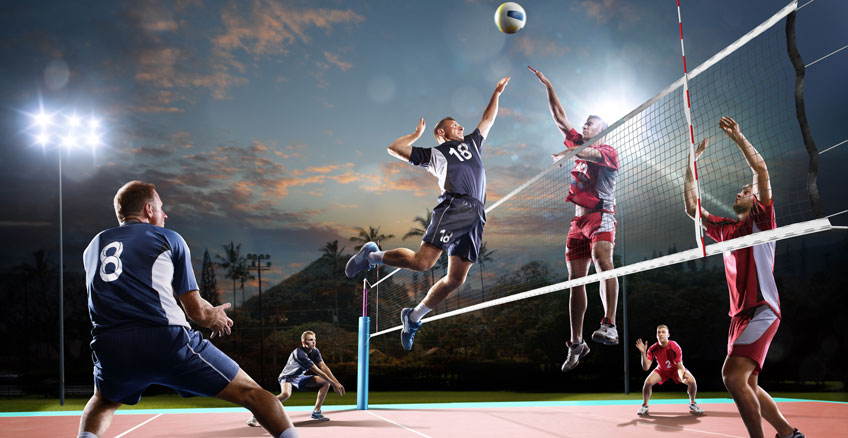
Sport is an extremely important part of students’ life in the US. No matter whether you play for the college team or simply spend time playing with your peers, in any case, sport gives you a priceless experience in terms of socialization (not to mention your physical development). Most educational institutions provide three common levels of sports participation — initial sports, club sports and the team of the university. The last one is the most sought-after, yet the most contradictory one — there has always been a controversy between those who believe that college athletes should get paid and those who think they shouldn’t.
One billion dollars — the sum approximately generated by the NCAA organization annually, responsible for student sports in the US. They say, it is only a 12th part of the value of the student sport in the country in overall, which makes the income the most part of it — 11 billion dollars, which is the amount most sports federations can only dream about. Only imagine, what one could do with this money, even if not spending it on sports. For instance, renew all the dorms in the universities across the country or even buy college essays, enough to provide all the students in the US with the homework done for the rest of their lives.
Still, some teams gather up to 110 thousand fans at home, so imagine the sales volume there. Trainers of such teams earn from 3 to 6 million dollars per year. But what about players? College athletes make nothing, while most everyone has to pay for the education. What’s more, all the athletes playing in students league are considered as amateurs, thus they have no right to sign up any professional sports contracts, with no right to gain profit.
Having said that, athletes do get a tangible privilege called athletic scholarship. It may raise a question — why should college be free for those who participate in sports? We’ll discover both sides of the argument carefully.
Reasons Why College Athletes Should Get Paid
- Recently 10 people got arrested in the US, including four managers from the NCAA, an agent and Adidas top-manager. The reason is simple — bribes of hundreds of thousands of dollars to force young athletes to choose specific “right” colleges, universities, sponsors, and agents. If the athletes got paid, it would change the situation instantly, thus destroying such corrupt practices.
- Typically, a young athlete dedicates about 43 hours per week to his training. What’s more, college athletes don’t receive any of the profits they earn by working hard on the field. Most part of it goes directly to coaches’ hands. As it was mentioned above, college sports generate huge amounts of income, while college athletes earn nothing from it. It may be considered as a fair pay for a hard work, yet another good reason why should college athletes be paid.
- Universities use student-athletes in advertising and promoting, thus giving an image to future applicants. Some students report that coaches track their social media, imposing the posts to make an advantageous image. Moreover, while they call studying athletes amateurs and “only students”, most of the university management, along with the NCAA administration, force players to skip classes, either to take part in training or games which are broadcasted, by the way. Being a network television program, it certainly brings high revenue. Isn’t it a kind of employment?
- Athletes get much more stress than their peers do. Indeed, they bear more responsibilities, have to find a balance between field and class, be able to succeed in both academics and in sports. Basically, being focused on a sports career during education, these students get rid of other important activities and university jobs.
All things considered, athletes are more valuable employees, than amateurs taking part in a leisure sports activity. Each job should have a decent payback — adequate point why should college athletes be paid. The fact is, college athletes feel they are being exploited, while universities keep receiving all the profit.
Reasons Why College Athletes Should Not be Paid

- First and foremost, speaking of huge amounts of money the college sport makes, we mostly imply to the most popular sports, which are football and basketball, of course. In other cases, student athletic programs simply have no funds to pay the students. On the other hand, there is an athletic scholarship, which fully or mostly fully covers the tuition of talented college athletes. Good news is that the number of sports scholarships is constantly growing, annually providing more than 150 thousand programs for students with various experience level. Moreover, athletes are provided with a decent level of support in terms of accommodation, food, medical healthcare, even clothing. Fair enough, many consider this is a good reason why college athletes should not be paid.
- Unfortunately, the idea that most college athletes will go pro is a myth. How many college athletes go pro in reality? Only 4 of 3600 basketball players get a contract with NBA yearly. What percentage of college athletes go pro, you ask. The answer is quite devastating — 1.7% of football college players will become professionals, only 0.6% of baseball college athletes will go pro, finally, 1.3% of ice hockey student players will get a chance to become pro. Considering these numbers, if college athletes get paid, they will most likely get disappointed at the end facing the truth — not even 2% of them will get a chance to go pro. Shouldn’t they pay more attention to education in order to secure their own professional future? No doubt, receiving a monthly or yearly income, athletes will never think about a chance to fail as a professional after graduation. A clever reason why college athletes should not be paid.
- Not all the students play sports in college with a dream to go pros. College sport is more like a shared idea, passion and a great approach to socializing, find new friends, get rid of stress, simply diversify the university life. If college athletes get paid, it will likely ruin the sport during studies overall.
To sum up, most people feel certain that college athletes are already privileged enough. On the other hand, athletes grow as physically, so emotionally, learn how to be disciplined, face and overcome challenges, be a part of a team. From this point of view, money may become a distraction, rather than motivation or reward.